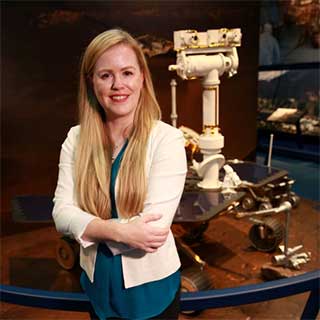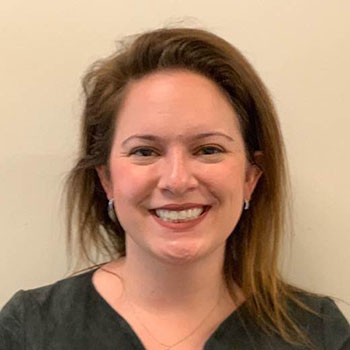About Us
Greetings, and welcome to the Origins and Habitability Lab. We are located in the Los Angeles area at the NASA Jet Propulsion Laboratory. Our research focuses on several main areas including: the origin of life on Earth and other worlds, geochemical requirements for habitability, and understanding how life can be distinguished from abiotic organic processes in geological systems. We are astrobiologists who seek to understand how life began on Earth, and how we may find habitable environments elsewhere in the solar system and in the universe. Our group has strong ties with other local institutions including California State University Los Angeles; California Institute of Technology; and the Los Angeles Natural History Museum.
Lab Principal Investigators (PIs)

Laurie Barge
Laurie Barge is a Research Scientist in astrobiology at the NASA Jet Propulsion Laboratory. She is also affiliated with the Blue Marble Space Institute of Science and the Oak Crest Institute of Science. She studies the emergence of life on Earth and ways to search for life elsewhere, particularly focusing on how minerals affect chemistry for the emergence of life on early Earth, Mars, and "ocean worlds" such as Saturn's moon Enceladus. Laurie leads various research efforts including: studying the effects of minerals and geochemical environments on life’s emergence (as PI of the “Becoming Biotic” team funded by the NASA/NSF Ideas Lab for the Origins of Life); developing astrobiology payloads and strategies to explore hydrothermal vents (as Science-PI of the NASA In-Situ Vent Analysis Divebot for Exobiology Research project); investigating phosphorus chemistry on rocky and icy planets (as PI of a NASA Habitable Worlds project); and investigating the energy for life in water-rock systems on ocean worlds (as PI of a NASA Exobiology project). Laurie is also Co-PI of the NSF “Pathways in STEM” program in which she designs geoscience career development activities for community college students, and Co-I of a NASA MOSAICS project that builds connections between astrobiology and environmental science research for Cal State LA students. Laurie is the HiRISE Investigation Scientist for NASA's Mars Reconnaissance Orbiter mission, a Mars Science Laboratory Participating Scientist, and is involved with various mission / instrument concepts for astrobiology. She received her B.S. in Astronomy and Astrophysics from Villanova University and her Ph.D. in Geological Sciences from the University of Southern California. After graduate school she was a postdoctoral fellow at JPL and then with the NASA Astrobiology Institute. For her astrobiology research Laurie has received the NASA Early Career Public Achievement Medal, the JPL Lew Allen Award, the Rosalind Franklin Society Award for Astrobiology, and the Presidential Early Career Award for Scientists and Engineers. For her outreach work Laurie has received the JPL Polaris Award for exceptional contributions to DEIA, and NASA’s Diversity, Equity, and Inclusion Medal.

Jessica Weber
Jessica Weber is a Research Scientist in Prebiotic Chemistry at NASA Jet Propulsion Laboratory. Jessica seeks to constrain abiotic organic chemistry possible within the solar system to answer questions about possible origins of life type events as well as biosignature identification. Her research focuses on prebiotic synthesis and reaction of organic materials, chemical weathering of mineral analogs, and the origins of metabolic pathways. Jessica is a Co-I on a NASA MOSAICS project that builds connections between astrobiology and environmental science research for Cal State LA students and a Co-I of a NASA Habitable Worlds project investigating organic formation on Enceladus’ seafloor. Jessica has also been involved in the 2019 Caltech-JPL Venus Seminar Series, Enceladus Vent Explorer (EVE) NASA Innovative Advanced Concept (NIAC) mission concept, the Exobiology Extant Life Surveyor (EELS), and the 2020 Planetary Science Summer School. She is also involved in various spaceflight mission concepts. Jessica is a founding member of both the Network for Ocean Worlds early career group, Future Leaders of Ocean Worlds (FLOW), and the VEXAG affiliated Venus Early Career group. Jessica earned her Ph.D. in Chemistry from the Massachusetts Institute of Technology and a B.S. in Chemistry from the University of Chicago. Prior to her current role, she was a JPL Postdoctoral Fellow from 2019-2022.
